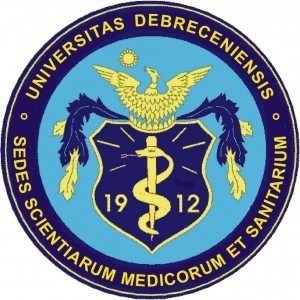The Bachelor of Science in Public Health at Rutgers University-Camden is a comprehensive undergraduate program designed to prepare students to address complex health challenges facing communities today. The curriculum integrates foundational knowledge in health sciences, social sciences, and biological sciences, equipping students with a multidisciplinary perspective essential for effective public health practice. Students will learn about epidemiology, health policy and management, environmental health, behavioral sciences, and biostatistics, gaining the skills necessary to analyze health data, develop health promotion strategies, and implement community-based interventions. The program emphasizes experiential learning through internships, research projects, and community engagement, providing students with hands-on experiences that foster practical skills and professional development. Graduates of the B.S. in Public Health are prepared to pursue careers in healthcare administration, public health agencies, non-profit organizations, research institutions, and policy development. They are also well-equipped to continue their education in graduate programs such as public health, epidemiology, or health policy. The program’s interdisciplinary approach helps students understand the social determinants of health and promotes a commitment to health equity and social justice. Rutgers-Camden’s faculty members are experienced professionals dedicated to mentoring students and fostering a collaborative academic environment. The diverse student body and inclusive campus culture create a vibrant learning community where students can engage in meaningful discussions and networking opportunities. Through a combination of classroom instruction, laboratory work, community projects, and internships, the Bachelor of Science in Public Health aims to produce competent, ethical, and socially responsible public health practitioners ready to make a positive impact in local, national, and global health contexts.
The Bachelor of Science in Public Health at Rutgers University-Camden is a comprehensive program designed to prepare students for diverse careers in the field of public health. The curriculum emphasizes the development of a broad understanding of health issues affecting populations locally, nationally, and globally. Students will explore core topics such as epidemiology, environmental health, health behavior and education, health policy and management, and social determinants of health. Through a combination of rigorous coursework, practical field experiences, and research opportunities, students gain essential skills to analyze public health problems, design interventions, and evaluate outcomes effectively.
The program aims to foster a multidisciplinary approach, encouraging students to understand the complex factors that influence health and wellness. It integrates knowledge from sciences, social sciences, and humanities to prepare graduates who can address health disparities and promote health equity. Students are encouraged to engage in community-based projects, internships, and collaborative research, enabling them to apply theoretical concepts in real-world settings. The curriculum is regularly updated to incorporate current public health challenges, such as infectious disease outbreaks, chronic illness management, mental health issues, environmental hazards, and health policy reforms.
Graduates of the program are equipped to pursue a variety of career paths in public health agencies, non-profit organizations, healthcare facilities, research institutions, and government sectors. They are also prepared for advanced education, including graduate studies in public health, healthcare administration, or related fields. The program’s dedicated faculty members bring extensive professional experience and research expertise, mentoring students to become informed, ethical, and effective public health practitioners. Overall, the Rutgers-Camden Public Health undergraduate program offers a solid foundation for those committed to making a positive impact on health outcomes and improving quality of life for diverse populations.
Program requirements for the Bachelor of Arts in Public Health at Rutgers University-Camden include completing a minimum of 120 credit hours, which encompasses general education courses, core public health courses, and electives. Students must successfully complete foundational courses such as Introduction to Public Health, Health Policy and Management, Epidemiology, and Environmental Health. Additionally, students are required to take courses in biostatistics, research methods, and social determinants of health to develop a comprehensive understanding of public health issues. The program emphasizes experiential learning; therefore, students are encouraged to participate in internships, service learning projects, or fieldwork placements to gain practical experience in community health settings. Students must also fulfill university general education requirements, including courses in English, mathematics, science, humanities, and social sciences. To graduate, students must maintain a minimum GPA as specified by the university, typically around 2.0 or higher. The program may also include a capstone project or thesis in the final semester to demonstrate mastery of public health concepts and research skills. Additionally, students are advised to check specific course prerequisites and maintain ongoing advising appointments to ensure they meet all program and graduation requirements. The program prepares graduates for entry-level roles in public health agencies, non-profit organizations, healthcare settings, or for further graduate study in public health or related fields.
The Bachelor of Public Health program at Rutgers University-Camden offers students a variety of financing options to support their educational pursuits. Tuition costs for in-state students are approximately $13,000 per year, while out-of-state students pay around $28,000 annually. In addition to tuition, students should budget for fees, textbooks, and living expenses, which vary depending on individual circumstances. Rutgers University-Camden provides numerous financial aid opportunities, including federal and state grants such as the Pell Grant and New Jersey Student Tuition Assistance Reward Scholarship (NJSTARS). Students are encouraged to complete the Free Application for Federal Student Aid (FAFSA) to determine their eligibility for these resources.
Scholarship programs specific to Rutgers University-Camden are available for outstanding students, including merit-based scholarships awarded based on academic achievement, leadership, and community involvement. The university also offers work-study programs that enable students to work part-time on campus, helping to reduce the financial burden. Additionally, many students utilize private scholarships and external funding sources to finance their studies. Rutgers University-Camden advises prospective students to explore payment plans, which allow tuition bills to be paid in installments, easing the financial burden throughout the academic year.
Students can also consider student loans, which are available through federal programs such as Direct Subsidized and Unsubsidized Loans, as well as private loan options. The university has a dedicated financial aid office that provides personalized counseling to help students navigate their options and develop a feasible financial plan. While specific financing studies for the Public Health program are not detailed separately, the university’s comprehensive financial support framework applies to all undergraduate programs, including Public Health. Students are encouraged to start the financial planning process early and to stay informed about deadlines and eligibility criteria to maximize their aid opportunities.
The Bachelor of Arts in Public Health at Rutgers University-Camden is designed to prepare students for careers in the burgeoning field of public health, emphasizing the importance of health promotion, disease prevention, and health policy. The program provides a comprehensive curriculum that combines core health sciences, social sciences, and practical skills necessary for addressing community health challenges. Students learn about epidemiology, biostatistics, environmental health, health behavior, and health policy, equipping them with a solid foundation to contribute to improving public health outcomes. The program also encourages engagement with local communities through internships and service-learning projects, fostering real-world experience and professional development. Graduates of this degree can pursue careers in government agencies, non-profit organizations, healthcare institutions, and research institutions. The program is designed to be flexible, offering electives that allow students to specialize in areas such as health education, health policy, or global health. Additionally, students have access to Rutgers' extensive network of health professionals and alumni, providing valuable networking opportunities. The faculty involved in the program are experienced researchers and practitioners committed to mentoring students and advancing public health initiatives. The curriculum is regularly updated to reflect current trends, challenges, and innovations in public health, ensuring graduates are well-prepared for the evolving landscape of health services and policy. Overall, the Rutgers University-Camden Public Health program aims to develop knowledgeable, ethical, and culturally competent public health professionals who are dedicated to fostering healthier communities locally and globally.










